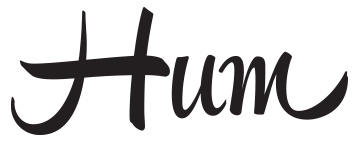Hum is part of communities in Vancouver’s Downtown Eastside, Downtown South (DTES/South), at the University of British Columbia on unceded, ancestral, traditional, Coast Salish territory, and across Canada.
Hum participants live, volunteer and work in the DTES/South and nearby areas. They come with diverse experiences and knowledge: Indigenous people and people from around the world. While classes are located at the UBC campus, Hum is as much a part of its downtown communities, also running weekly free Public Programmes at DTES/South community centres (Carnegie Centre, the Downtown Eastside Women’s Centre, nə́c̓aʔmat ct Strathcona Branch of the Vancouver Public Library, and the Gathering Place). These Programmes are open to the general public and are led by alumni and volunteers.
Everyone who has completed a Hum course is an automatic member of Hum’s Steering Committee, which meets regularly in the DTES. The Programme is committed to being responsible to its downtown communities through respectful, long term relationships based in learning, and the steering committee helps to reinforce these commitments by guiding all aspects of the program. At a 2012 strategic planning meeting, steering committee members collectively articulated what Hum means to them: “Hum takes us on an adventure of open-mindedness, possibilities, social participation and connectivity by unpacking preconceived ideas. Hum generates direction, community, knowledge, opportunity, possibilities and self-awareness through practices that distinguish our unity, creativity, knowledge, self-esteem, self-respect and self-determination.”
To date, over thousand students have graduated and there have been 225 volunteer teachers and almost 300 supportive UBC student and Hum alumni volunteers who assist the dedicated Programme staff and faculty. Volunteer teachers and students come from a range of disciplines and faculties, including arts, education, and science. While most volunteers work and/or study at UBC, Hum has established long-term relationships with many SFU graduate students and professors. DTES activists and educators also regularly teach on Hum courses, as do workers from cultural centres like the Vancouver Art Gallery, Surrey Art Gallery, and Bill Reid Gallery and Museum of Vancouver.
Hum is the first and largest programme of its kind in Canada, but many more people are enmeshed in the sister programmes across Canada and similar courses elsewhere. Along with the current focus on support for Indigenous people’s educational desires, responsible relationships between universities and communities, and international interest in freeing education, Hum is part of many movements….
